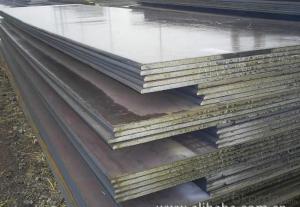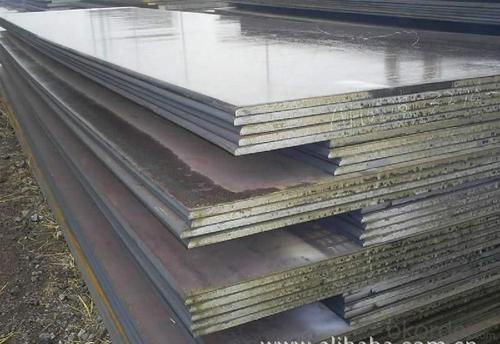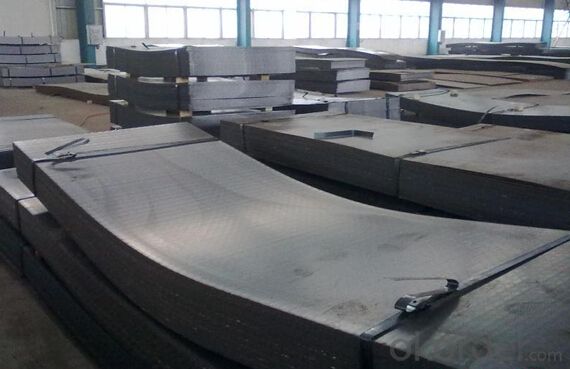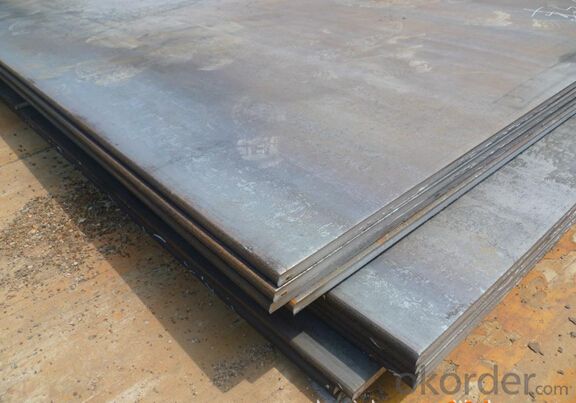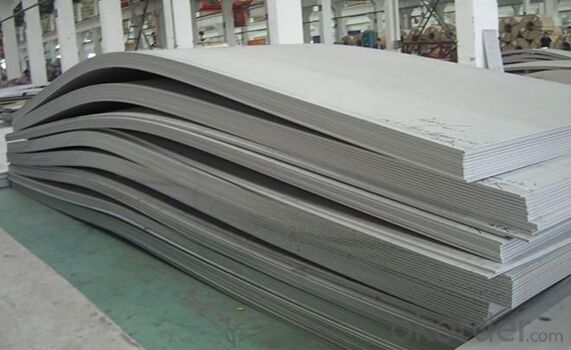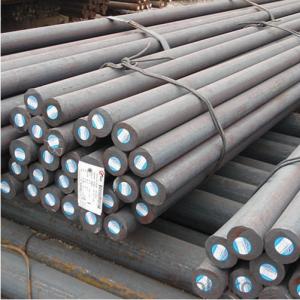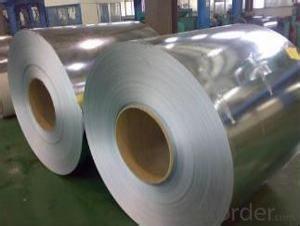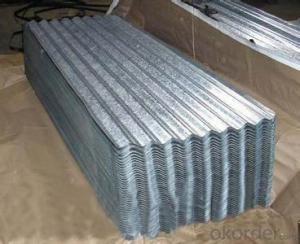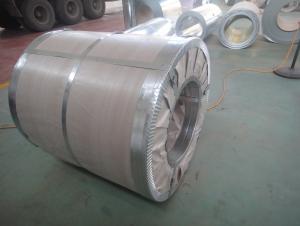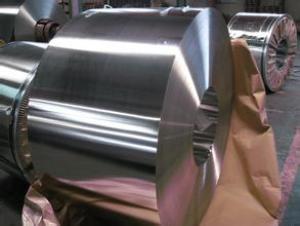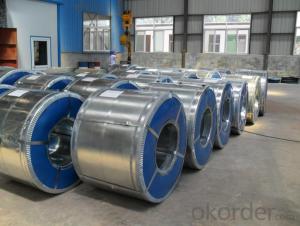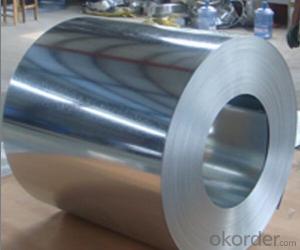Hot Dip Galvanized Steel Coil Sheet in Grades
- Loading Port:
- Tianjin
- Payment Terms:
- TT OR LC
- Min Order Qty:
- 5 m.t.
- Supply Capability:
- 10000 m.t./month
OKorder Service Pledge
OKorder Financial Service
You Might Also Like
Specification
Hot Dip Galvanized Steel Coil Sheet in Grades
Specification of the Hot Dip Galvanized Steel Coil Sheet in Grades
| NAME | PPGI | GALVANIZED | GALVALUME/ZINCALUME |
| CERTIFICATE | ISO9001:2008 | ||
| STANDARD | EN10142 JIS G3302 GB/T-12754-2006 | ASTM A653M JIS G3302 GB/T2518 EN 10142 | ASTM A792M JIS G3321 JIS G3317 EN 10215 |
| GRADE | CGCC CGCH CGCD1-CGCD3 CGC340-CGC570 | DX51D+Z/DX52D+Z/S250GD+Z S300GD+Z/S350GD+Z/S550GD+Z SGCC/SGCH/SGCD1-SGCD3/SGC340-SGC570 G2+Z/G3+Z/G250+Z/G300+Z G350+Z/G550+Z | DX51D+AZ/DX52D+AZ/S250GD+AZ S300GD+AZ/S350GD+AZ/S550GD+AZ SGLCC/SGLCD/SGLC300-SGLC570 G2+AZ/G3+AZ/G250+AZ/G300+AZ G350+AZ/G550+AZ |
| COATING | RAL COLOURS | Z60g/m2 to Z275g/m2 | AZ30g/m2 to AZ150g/m2 |
| SIZE | (0.13mm-1.5mm)X1000mm OR as requirements | (0.13mm-4.0mm)X1500mm OR as requirements | (0.12mm-4.0mm)X1500mm OR as requirements |
| TYPE | Steel coil Steel sheets/plates Corrugated steel sheets/plates | Steel coil Steel sheets/plates Corrugated steel sheets/plates | Steel coil Steel sheets/plates Corrugated steel sheets/plates |
| TECHNIQUE | Hot rolled-cold rolled -galvalume /galvanized -PPGI/PPGL | Hot rolled-cold rolled -galvanized | Hot rolled-cold rolled -galvalume /Aluzinc |
| SURFACE TREATMENT | Mini/regular/big/zero spangle,Chromate treatment /chromate-free treatment /untreated unoile/oiled, TENSION LEVELLER SKIN PASS anti-fingerprint/un-anti-fingerprint, Coating,color | Mini/regular/big/zero spangle,Chromate treatment /chromate-free treatment /untreated unoile/oiled,TENSION LEVELLERT SKIN PASS anti-fingerprint/un-anti-fingerprint,Coating | |
| APPLICATION | Structural use ,roofing, commercial use, household appliance, industry, family Roofs and outside walls of civilian and industrial buildings, garage doors, fencings and window blinds; Outer clad sheets for washing machine, refrigerator, televi-sion, air conditioner and ventilation system, explosion-proof strip, solar water heater and appliance parts; Muffler, heat shields of exhaust pipe and catalytic converter, auto parts & accessories under the frame, signboard in high -way; Electric control cabinet, industrial refrigeration equipment, automatic vending machine; Wear resistant steel, high- strength - steel plate | ||
Supplier of the Hot Dip Galvanized Steel Coil Sheet in Grades
CNBM International Corporation is the most import and export platform of CNBM group(China National Building Material Group Corporation) ,which is a state-owned enterprise, ranked in 270th of Fortune Global 500 in 2015.
With its advantages, CNBM International are mainly concentrate on Cement, Glass, Iron and Steel, Ceramics industries and devotes herself for supplying high quality series of refractories as well as technical consultancies and logistics solution.
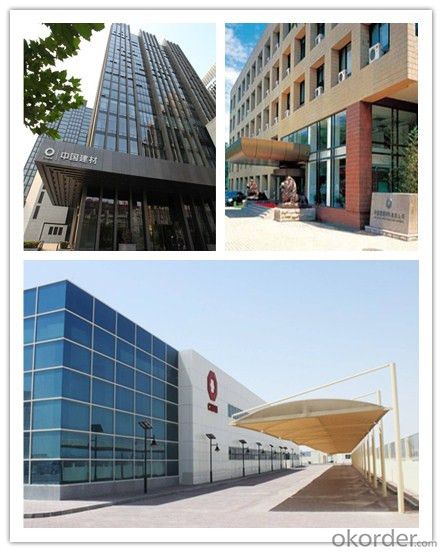
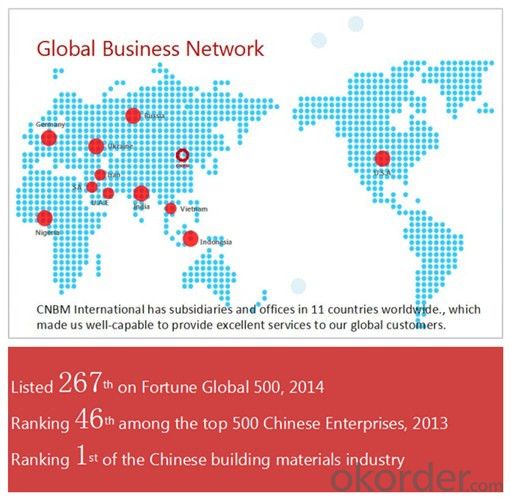
Delivery of the Hot Dip Galvanized Steel Coil Sheet in Grades
Packaging Detail | Sea worthy packing /as per customer's packing instruction |
Delivery Detail | 15 ~ 40 days after receiving the deposit |
Products Show
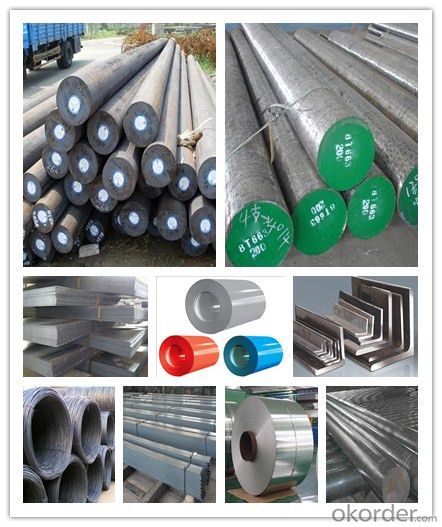
FAQ:
Are you a trading company or manufacturer? | Manufacturer |
What’s the MOQ? | 3 metric ton |
What’s your delivery time? | 15-35 days after downpayment received |
Do you Accept OEM service? | Yes |
what’s your delivery terms? | FOB/CFR/CIF |
What's the Payment Terms? | 30% as deposit,70% before shipment by T/T |
Western Union acceptable for small amount. | |
L/C acceptable for large amount. | |
Scrow ,Paybal,Alipay are also ok | |
Why choose us? | Chose happens because of quality, then price, We can give you both. Additionally, we can also offer professional products inquiry, products knowledge train (for agents), smooth goods delivery, excellent customer solution proposals. |
What's your available port of Shipment? | Main Port, China |
What’s your featured services? | Our service formula: good quality+ good price+ good service=customer's trust
|
Where are your Market? | Covering more than 160 countries in the world |
- Q: How does special steel contribute to the marine industry?
- The marine industry greatly relies on special steel due to its exceptional strength, durability, and corrosion resistance, which are vital qualities for various marine applications. A significant role of special steel in the marine industry lies in the building of ships and submarines. These vessels face harsh environmental conditions, such as exposure to saltwater, extreme temperatures, and high pressures. Special steel, such as high-strength low-alloy (HSLA) steel or stainless steel, ensures the structural integrity of these vessels and improves their overall performance. The high strength-to-weight ratio of the steel allows for the creation of lighter yet sturdy hulls, enabling ships and submarines to navigate rough seas more effectively. In addition, special steel is extensively used in marine equipment and components. For instance, it is utilized in the manufacturing of propeller shafts, rudders, and other crucial parts that need to withstand the forces exerted by water. Stainless steel, with its corrosion-resistant properties, is ideal for various marine fittings like valves, fasteners, and pipes, guaranteeing longevity and efficient operation in highly corrosive marine environments. Furthermore, special steel finds applications in offshore structures such as oil rigs, platforms, and wind turbines. These structures must endure harsh conditions like strong ocean currents, heavy waves, and corrosive saltwater. Special steel grades like carbon-manganese steel or weathering steel are specifically designed to provide exceptional strength and corrosion resistance, making them suitable for offshore installations. Lastly, in the marine industry, special steel is indispensable for fabricating marine containers and cargo handling equipment. The steel's high tensile strength and impact resistance ensure the safe transportation of goods by sea, making sure that containers can withstand dynamic forces during shipping and protect the cargo from water intrusion. All in all, special steel's unique properties make it an essential material in the marine industry. Its strength, durability, and corrosion resistance significantly contribute to the construction of ships, submarines, offshore structures, marine equipment, and cargo containers, enabling safe and efficient maritime operations.
- Q: How does special steel contribute to the machinability of products?
- The role of special steel in enhancing product machinability is substantial. Machinability refers to a material's ease of being cut, drilled, or shaped through various machining processes. Special steel, also known as alloy steel, is formulated with specific elements that improve its machinability. One vital aspect of special steel that enhances its machinability is its composition. By incorporating elements like manganese, sulfur, and phosphorus, special steel achieves superior machinability compared to regular carbon steel. These elements reduce friction during machining, resulting in less tool wear and longer tool lifespan. Additionally, they facilitate the formation of smaller, more manageable chips during cutting, making it easier to control the machining process and maintain dimensional accuracy. Furthermore, special steel often undergoes specific heat treatment processes like annealing or quenching and tempering to further enhance its machinability. Heat treatment improves the steel's microstructure, making it more uniform and refined, consequently improving its machinability characteristics. Heat-treated special steel exhibits improved hardness, toughness, and resistance to wear, all of which are crucial for achieving high-quality machined products. Moreover, special steel can be engineered to possess other desirable properties such as high strength, corrosion resistance, or heat resistance while still maintaining good machinability. This versatility allows manufacturers to select the most suitable special steel for their specific machining applications, ensuring optimal performance and productivity. In summary, special steel plays a significant role in product machinability due to its specific composition, heat treatment processes, and versatile properties. By utilizing special steel, manufacturers can achieve better machining performance, improved tool lifespan, and higher dimensional accuracy, ultimately resulting in superior quality products.
- Q: How does special steel contribute to the automotive fuel efficiency?
- Special steel contributes to automotive fuel efficiency in several ways. Firstly, it allows for the construction of lighter and stronger components, such as the body frame and engine parts, which reduces the overall weight of the vehicle. A lighter vehicle requires less energy to accelerate and maintain speed, resulting in improved fuel efficiency. Secondly, special steel can be used to manufacture components with higher precision and tighter tolerances, minimizing friction and energy loss within the engine and drivetrain. Additionally, the use of special steel in exhaust systems helps to improve the efficiency of emissions control technologies, reducing the environmental impact of the vehicle. Overall, special steel plays a crucial role in enhancing fuel efficiency by enabling the production of lighter, stronger, and more efficient automotive components.
- Q: How is special steel used in the production of gears?
- Special steel is used in the production of gears due to its high strength, durability, and resistance to wear and fatigue. It provides the necessary toughness and hardness required to withstand the stresses and loads that gears experience during operation. Additionally, special steel can be heat treated to enhance its properties, ensuring precise dimensions and improving the overall performance and lifespan of gears.
- Q: What are the main applications of special steel in the chemical processing industry?
- Special steel is widely used in the chemical processing industry due to its exceptional properties such as corrosion resistance, high strength, and heat resistance. It finds applications in various components and equipment such as reactors, heat exchangers, pipes, valves, and fittings. These materials are crucial for handling corrosive chemicals, withstanding high temperatures and pressures, and ensuring the integrity and safety of chemical processing operations.
- Q: What are the advantages of using special steel in industrial applications?
- There are several advantages of using special steel in industrial applications. Firstly, special steel offers exceptional strength and durability, making it suitable for heavy-duty tasks. The unique composition and manufacturing process of special steel result in a material that can withstand high levels of stress, extreme temperatures, and harsh environmental conditions. This makes it ideal for industries such as construction, automotive, and manufacturing, where reliable and long-lasting materials are required. Secondly, special steel exhibits excellent corrosion resistance. It can resist the damaging effects of moisture, chemicals, and other corrosive agents, which is crucial in industries like marine, oil and gas, and chemical processing. The corrosion resistance of special steel reduces the need for frequent maintenance and replacement, saving both time and costs for industrial applications. Furthermore, special steel offers superior machinability and formability. It can be easily shaped, cut, and welded to meet specific design requirements. This versatility allows for complex and intricate designs in various industrial applications, including machinery, tools, and equipment. Another advantage of special steel is its ability to maintain its properties at high temperatures. It has excellent heat resistance, ensuring that it remains strong and stable even under extreme heat conditions. This makes special steel suitable for applications involving high-temperature environments, such as aerospace, power generation, and furnace components. Additionally, special steel can exhibit excellent wear resistance and hardness. It can withstand abrasion, friction, and impact, making it ideal for applications where materials are subjected to heavy wear and tear, such as mining, construction equipment, and cutting tools. The wear resistance of special steel ensures that components have a longer lifespan and require less frequent replacement. In conclusion, the advantages of using special steel in industrial applications include exceptional strength and durability, corrosion resistance, machinability and formability, heat resistance, and wear resistance. These properties make special steel a preferred choice for a wide range of industries, contributing to improved performance, longevity, and cost-effectiveness.
- Q: How does special steel perform in surface hardening applications?
- Special steel is renowned for its exceptional performance in surface hardening applications, as it possesses certain desirable properties such as high strength, toughness, and resistance to corrosion and heat. Unlike regular steel, special steel exhibits superior characteristics when it comes to surface hardening. This is due to the presence of alloying elements like chromium, molybdenum, and vanadium, which enhance its hardenability and allow for effective heat treatment processes such as carburizing, nitriding, or induction hardening. These processes alter the microstructure of the steel surface, resulting in increased hardness and wear resistance. What sets special steel apart is its ability to be hardened to a greater depth compared to regular steel. This quality makes it an ideal choice for surface hardening applications, as the hardened layer provides protection against abrasion, erosion, and fatigue, significantly prolonging the lifespan of the component. Moreover, the improved wear resistance and hardness of special steel make it suitable for industries such as automotive, aerospace, and manufacturing, where components are subjected to extreme conditions and high levels of stress. Furthermore, even after surface hardening, special steel retains its exceptional mechanical properties, ensuring durability and the ability to withstand heavy loads and impacts without failure. This combination of hardness and toughness is crucial for applications where both wear resistance and structural integrity are vital. In conclusion, special steel is highly effective in surface hardening applications due to its superior hardenability, wear resistance, and mechanical properties. Its ability to endure extreme conditions while maintaining durability makes it the preferred choice for industries that require components with enhanced surface hardness and longevity.
- Q: What is the role of special steel in the construction industry?
- Special steel plays a crucial role in the construction industry as it provides enhanced strength, durability, and resistance to corrosion. It is commonly used in the construction of high-rise buildings, bridges, and infrastructure projects, where structural integrity is crucial. Special steel's unique properties enable it to withstand extreme conditions and heavy loads, ensuring the safety and longevity of construction projects. Additionally, its versatility allows for the fabrication of various components, such as beams, columns, and reinforcement bars, making it an indispensable material in the construction industry.
- Q: What are the different surface protection methods for special steel?
- There are several surface protection methods for special steel, including galvanization, coating with protective paints or varnishes, electroplating, and applying corrosion-resistant alloys or metals. These methods help prevent rust, corrosion, and other forms of damage, ensuring the longevity and durability of the special steel.
- Q: What are the main properties of special steel?
- Special steel, also known as alloy steel, possesses several key properties that set it apart from regular steel. Firstly, it exhibits exceptional strength and hardness, making it highly resistant to wear, impact, and deformation. Additionally, special steel offers excellent corrosion resistance, ensuring durability and longevity in various environments. It also demonstrates superior heat resistance, allowing it to withstand high temperatures without losing its structural integrity. Lastly, special steel offers excellent machinability, enabling it to be easily shaped, fabricated, and processed into a wide range of components and structures.
Send your message to us
Hot Dip Galvanized Steel Coil Sheet in Grades
- Loading Port:
- Tianjin
- Payment Terms:
- TT OR LC
- Min Order Qty:
- 5 m.t.
- Supply Capability:
- 10000 m.t./month
OKorder Service Pledge
OKorder Financial Service
Similar products
Hot products
Hot Searches
Related keywords
